We provide a comprehensive range of protective gear to ensure personnel safety in high-risk working environments. These solutions are essential for safeguarding against thermal hazards, chemical exposure, and physical impact during operations. Designed for comfort, durability, and functionality, they support compliance with occupational safety standards while enhancing on-site productivity. Used across construction, industrial, and fire protection projects, our gear meets strict regulatory guidelines and helps reduce the risk of injury. By investing in quality protection for your workforce, you create a safer, more efficient job site aligned with health and safety protocols.
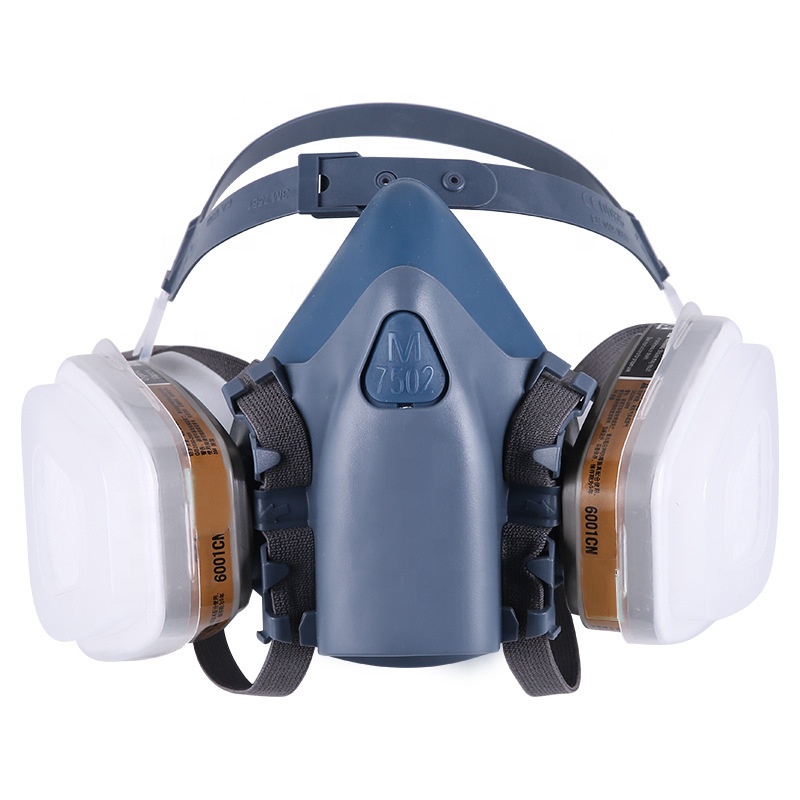
Respirator masks are essential PPE in fireproofing and fire stopping environments, protecting workers from airborne hazards like dust, fibers, and chemical vapors. Available in half or full-face designs, these masks use replaceable filters (P100, organic vapor cartridges, etc.) to ensure respiratory safety during application of intumescent coatings, cementitious sprays, and sealants. OSHA-compliant and NIOSH-certified, respirators are critical for jobs involving exposure to silica, solvents, or insulation fibers. Proper respiratory protection minimizes health risks and ensures a safe worksite in enclosed or ventilated areas.
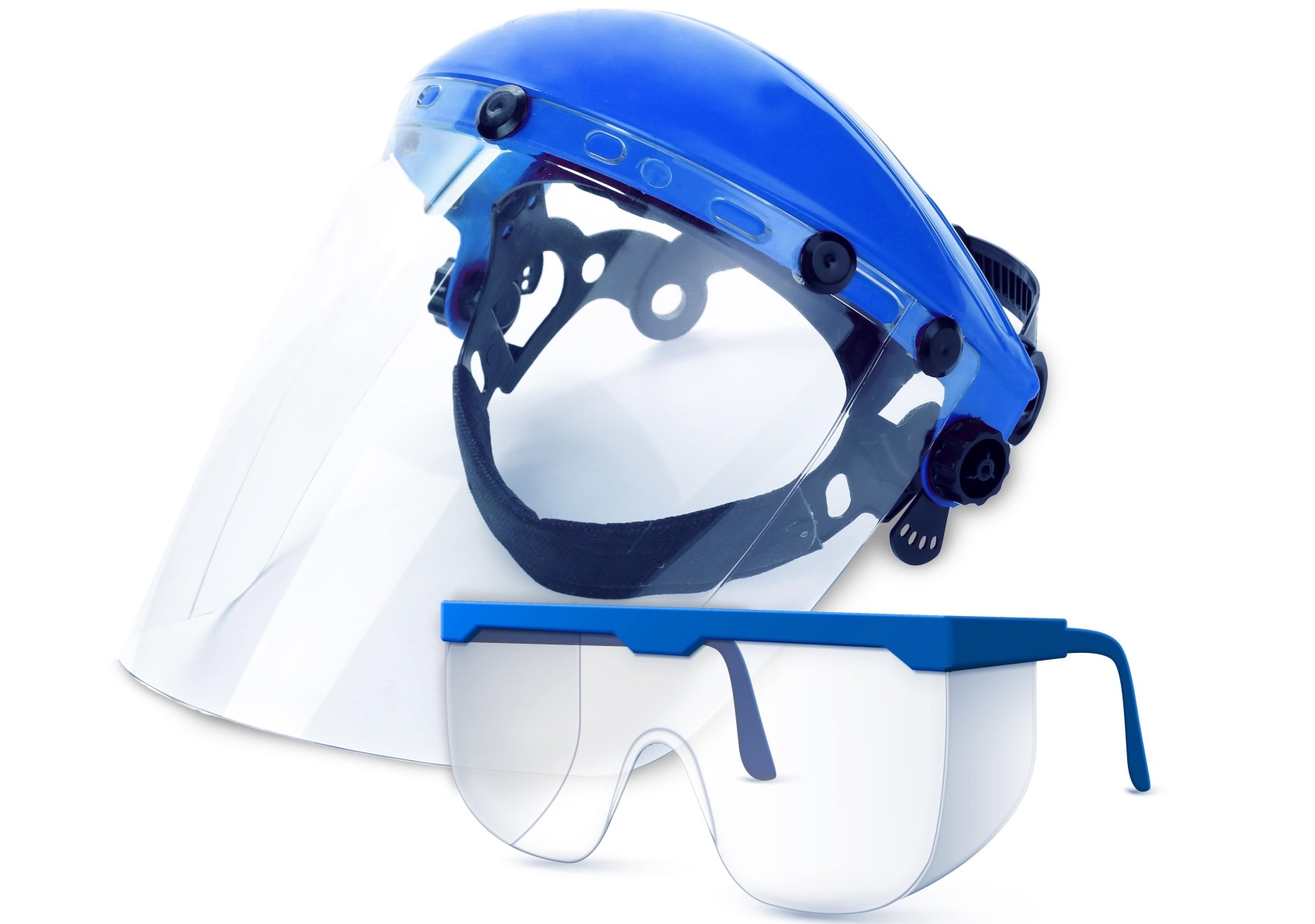
Safety goggles and face shields provide critical eye and face protection during fireproofing and fire stopping operations. Goggles protect against airborne particles, chemical splashes, and dust from spray applications or cutting materials, while face shields offer full-face coverage during high-risk tasks. ANSI Z87.1-rated, these protective tools are essential for compliance on job sites using power tools, firestop mortars, or hazardous chemicals. When combined, they provide maximum defense against irritation and injury, ensuring safe handling of fire-resistant materials and tools.
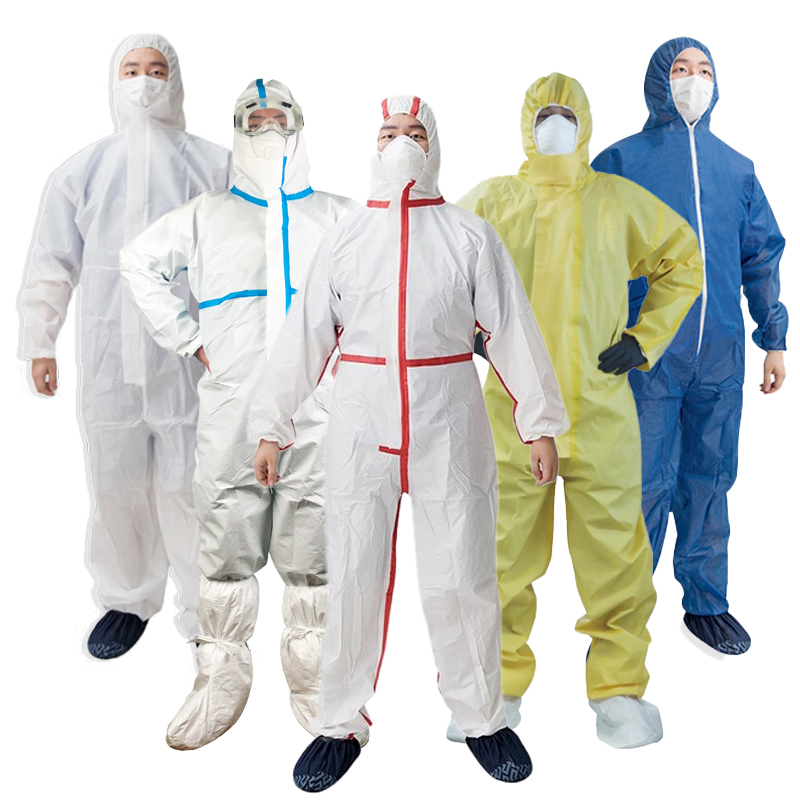
Disposable coveralls protect workers from dust, overspray, and contamination during fireproofing and firestop application. Made from breathable yet durable materials like polypropylene or Tyvek®, they resist penetration from particulates, cementitious compounds, and fire-retardant chemicals. Lightweight and easy to dispose of, these coveralls maintain hygiene and reduce cross-contamination between job sites. Ideal for spray operations or confined space work, they ensure worker protection while meeting basic PPE standards. Available in hooded, elastic-cuffed styles for full-body coverage and compatibility with other safety gear.
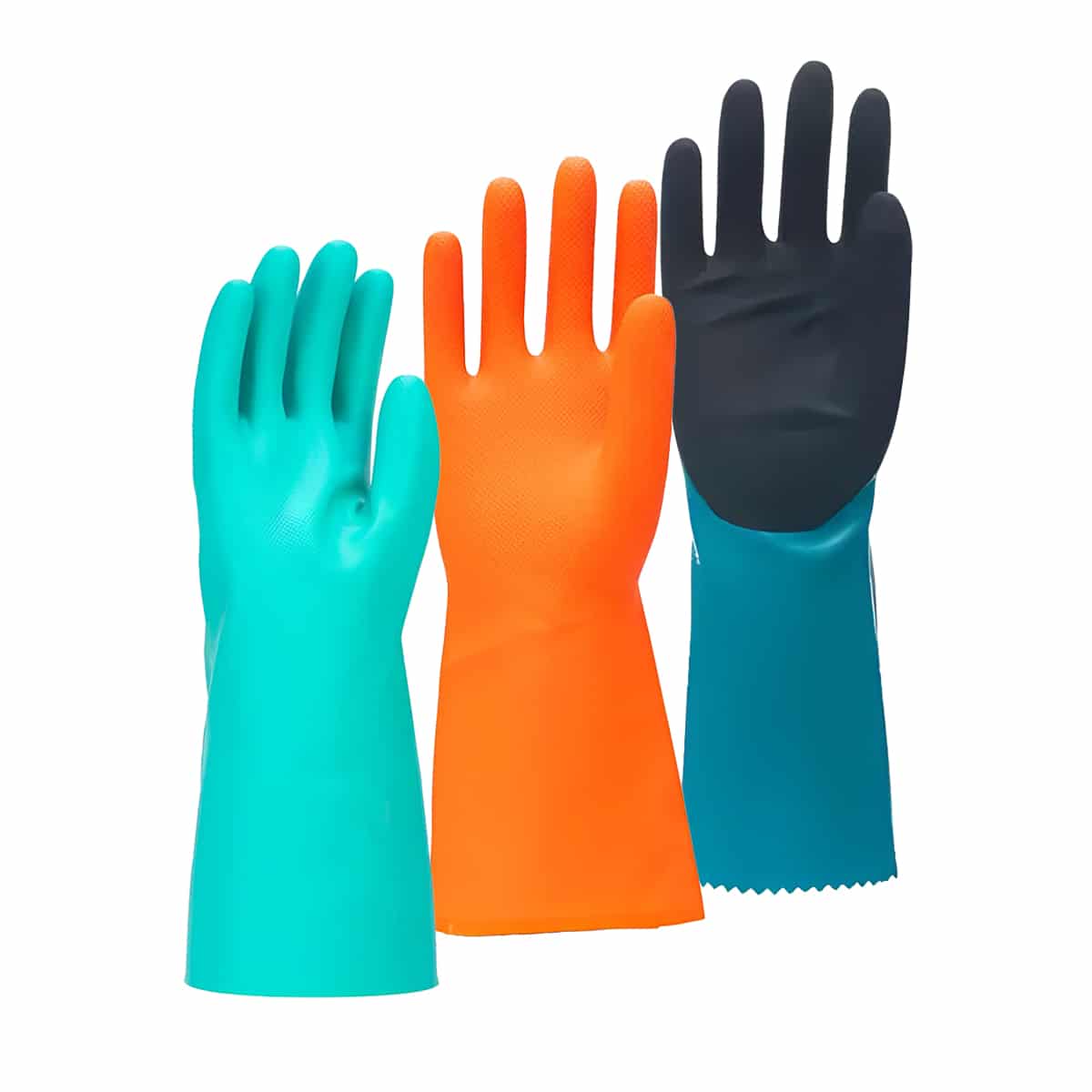
Chemical-resistant gloves made of nitrile, neoprene, or PVC protect workers’ hands from corrosive firestop sealants, solvents, and fire-retardant coatings. Designed for high dexterity and chemical resistance, these gloves prevent skin irritation and chemical burns during application and cleanup. Available in varying thicknesses and cuff lengths, they offer durable protection without sacrificing flexibility. Conforming to EN374 and ANSI/ISEA 105 standards, chemical-resistant gloves are essential PPE in environments involving hazardous chemicals, ensuring safe and effective fireproofing operations.
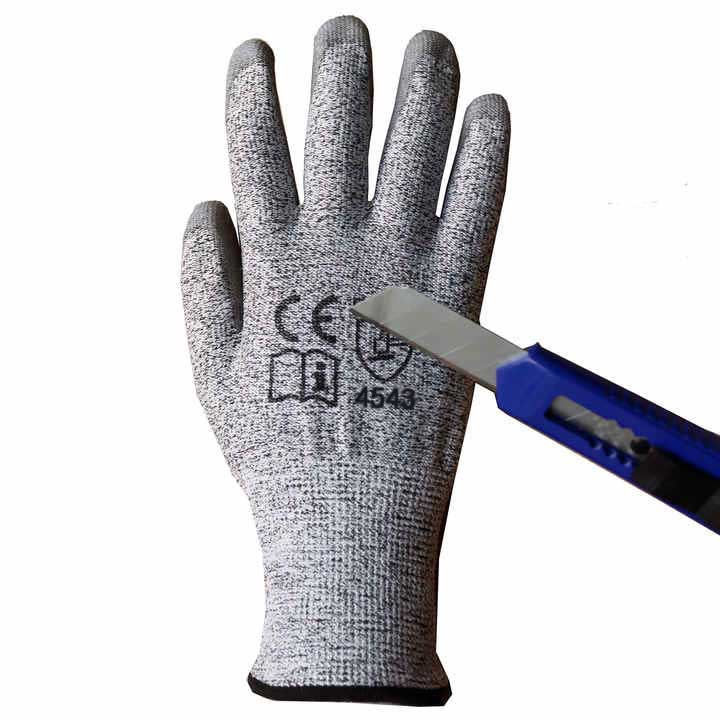
Cut-resistant gloves, often Kevlar-lined, provide hand protection during firestopping tasks involving sharp tools or abrasive materials. They safeguard against lacerations when handling metal collars, cutting insulation, or trimming firestop wraps and boards. Rated under ANSI/ISEA 105 or EN388 standards, these gloves offer varying levels of cut, puncture, and abrasion resistance. Lightweight and flexible, they ensure both safety and comfort for extended use. Essential for preventing injuries on high-risk construction sites, cut-resistant gloves are a must for firestop technicians and installers.
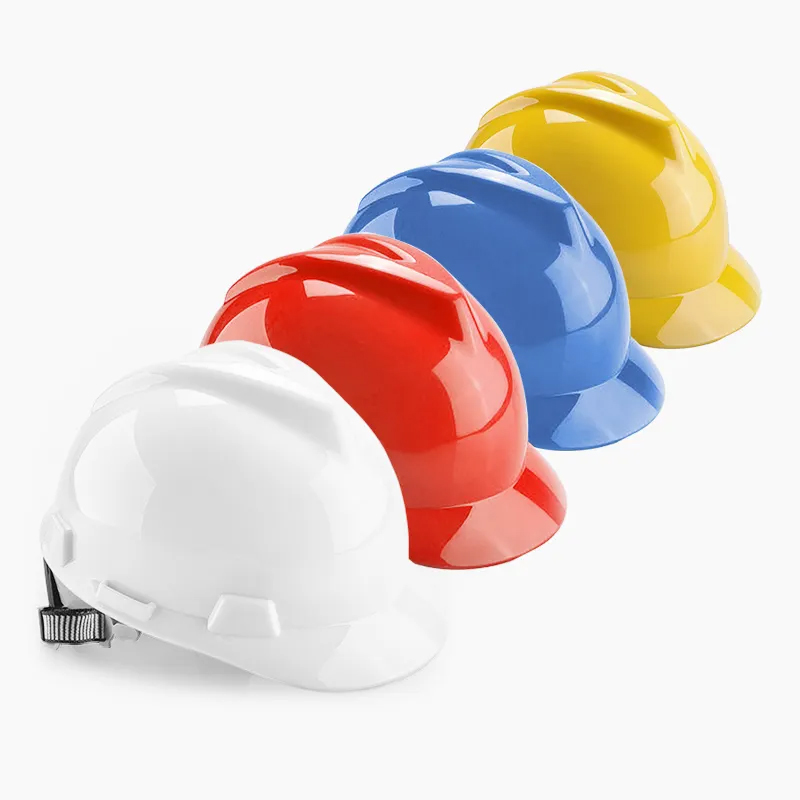
A safety helmet, or hard hat, protects against falling objects and impact injuries during fireproofing and fire stopping work on active construction sites. Made from high-density polyethylene or fiberglass, hard hats comply with ANSI Z89.1 standards and feature adjustable suspensions for secure fit. Optional accessories like face shields or earmuffs enhance protection. Whether working on scaffolding, around overhead equipment, or in confined spaces, a hard hat is essential PPE for preventing head injuries and ensuring workplace safety compliance.
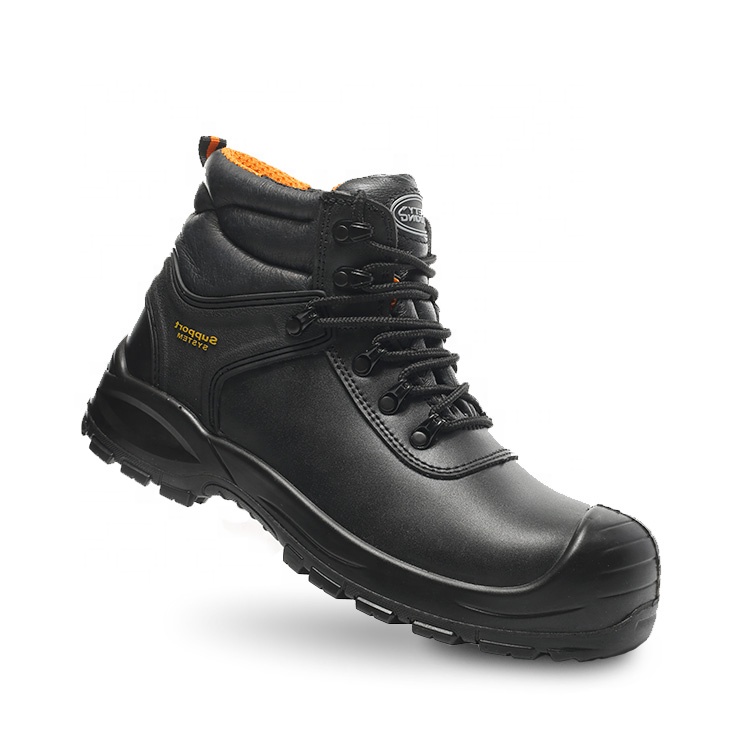
Steel-toe safety boots protect feet from impact, punctures, and slip hazards common in fireproofing environments. Built with reinforced toe caps and slip-resistant soles, they are ideal for job sites with heavy equipment, falling objects, or chemical exposure. Many models offer heat resistance and waterproofing, making them suitable for wet cementitious applications or working near hot surfaces. OSHA-compliant and ASTM F2413-rated, these boots ensure both comfort and safety, supporting workers through long shifts in demanding firestopping and construction environments.
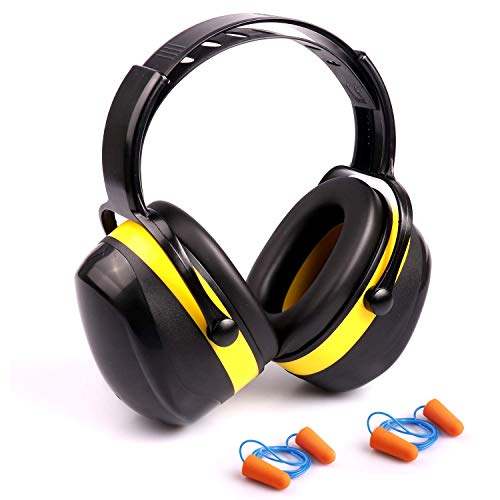
Hearing protection—such as earplugs or earmuffs—is critical on noisy fireproofing and construction sites where machinery like spray pumps, drills, and compressors are in use. Designed to reduce noise exposure to safe levels, these PPE devices help prevent hearing loss and meet ANSI S3.19 standards. Foam earplugs offer disposable, lightweight protection, while earmuffs provide reusable, high-attenuation defense. Effective hearing protection ensures worker comfort and compliance with OSHA noise regulations, especially in enclosed or high-decibel environments during firestop installations.
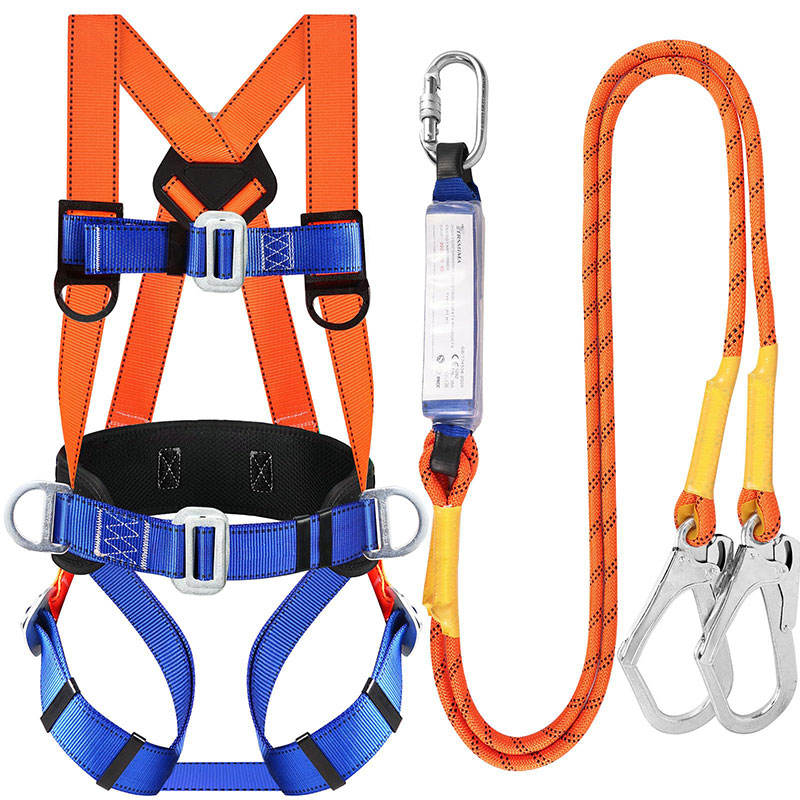
Fall protection systems—including harnesses, lanyards, and anchor points—are essential for working at height during fireproofing and fire stopping on elevated structures. Designed to meet OSHA 1926 Subpart M and ANSI Z359 standards, these systems prevent injury in case of slips or falls from scaffolding, boom lifts, or rooftops. Full-body harnesses distribute fall force evenly, while shock-absorbing lanyards and certified anchors ensure secure tie-offs. Mandatory for elevated work, fall protection gear protects life and supports safe installation of fire-resistant materials.
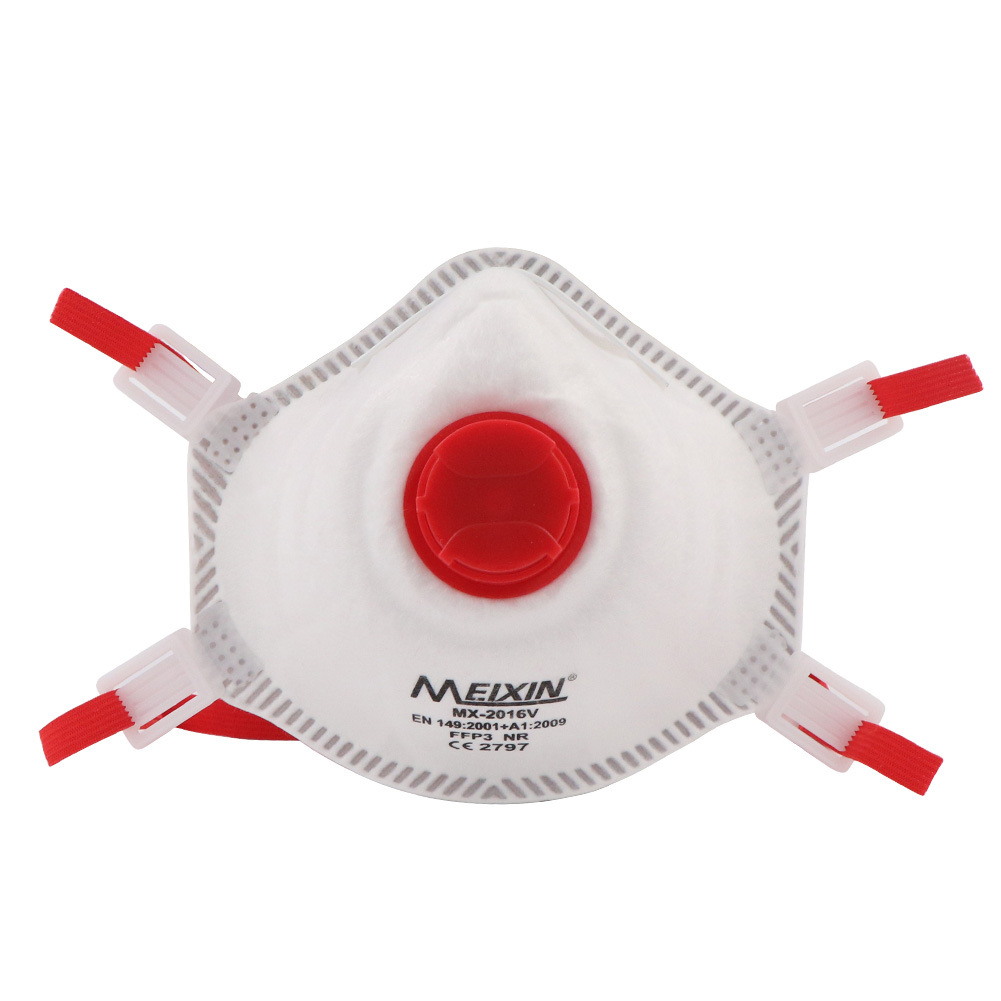
Disposable dust masks, with a minimum N95 rating, provide respiratory protection in environments with airborne particles from cementitious sprays, mineral wool, or firestop mortars. Ideal for low-exposure applications or short-term use where full respirators are not required, NIOSH-approved masks filter at least 95% of airborne contaminants. Lightweight and comfortable, N95 masks are essential for compliance with OSHA silica exposure rules. They serve as a basic, effective defense against inhalation hazards in fireproofing and firestopping jobs with dust exposure.
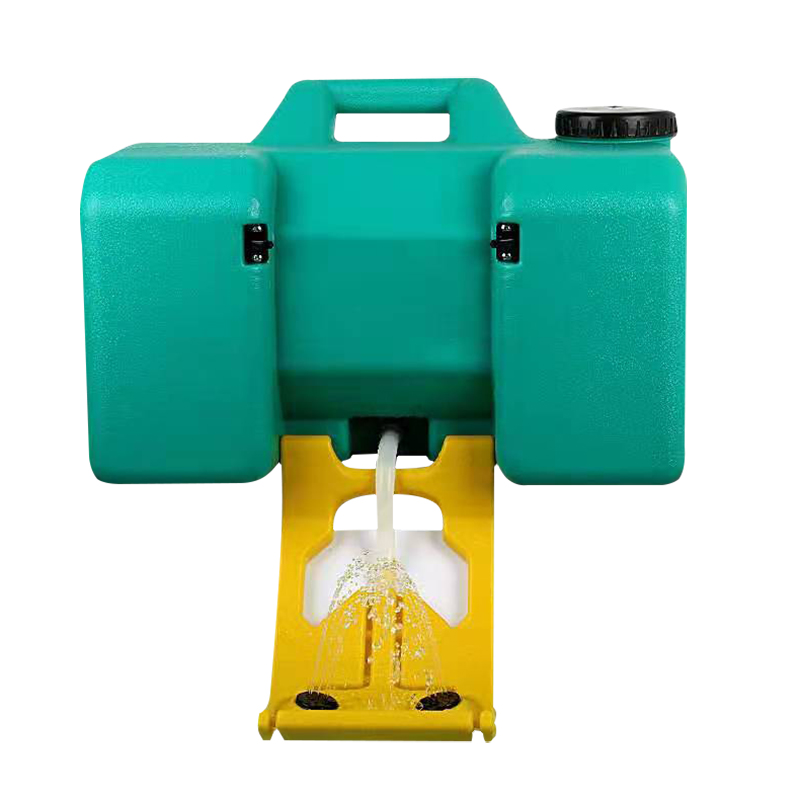
A portable eye wash station is a crucial emergency safety device for flushing eyes exposed to fire-retardant chemicals, dust, or insulation fibers. Required on job sites handling corrosive or irritating materials, it provides immediate, OSHA-compliant first response for eye injuries. Typically self-contained and easy to transport, these stations ensure compliance with ANSI Z358.1 standards. Quick access to eye wash facilities minimizes injury severity and ensures safer working conditions for firestop technicians and fireproofing crews operating in hazardous environments.

A first aid kit is essential safety equipment on fireproofing and firestop job sites, providing immediate treatment for cuts, burns, chemical exposure, and other minor injuries. Stocked with bandages, antiseptics, eyewash, gloves, and burn cream, the kit should comply with ANSI Z308.1 standards. Quick access to first aid supplies helps reduce the severity of injuries and supports regulatory compliance. Whether mobile or wall-mounted, a well-maintained kit is a critical component of any job site’s emergency response protocol.
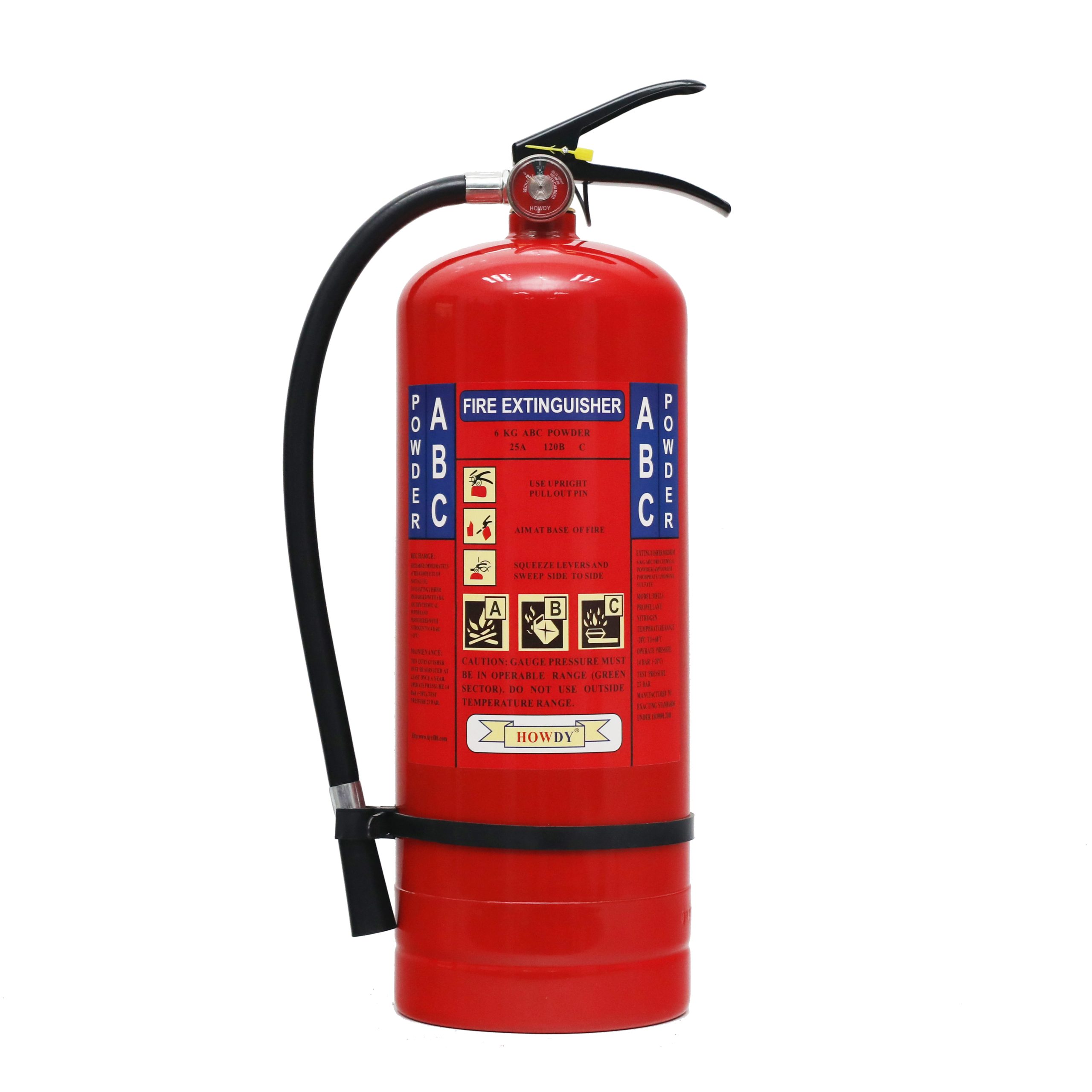
An ABC-type fire extinguisher is vital for immediate fire response on fireproofing and firestopping job sites. Rated for Class A (combustibles), B (flammable liquids), and C (electrical fires), it provides versatile protection in environments where flammable coatings, electrical tools, and spray equipment are in use. Easy to operate and OSHA-required, ABC extinguishers ensure a quick response to small fires before they escalate. Regular inspection and proper training in use are essential for maintaining a fire-safe work environment during passive fire protection work.
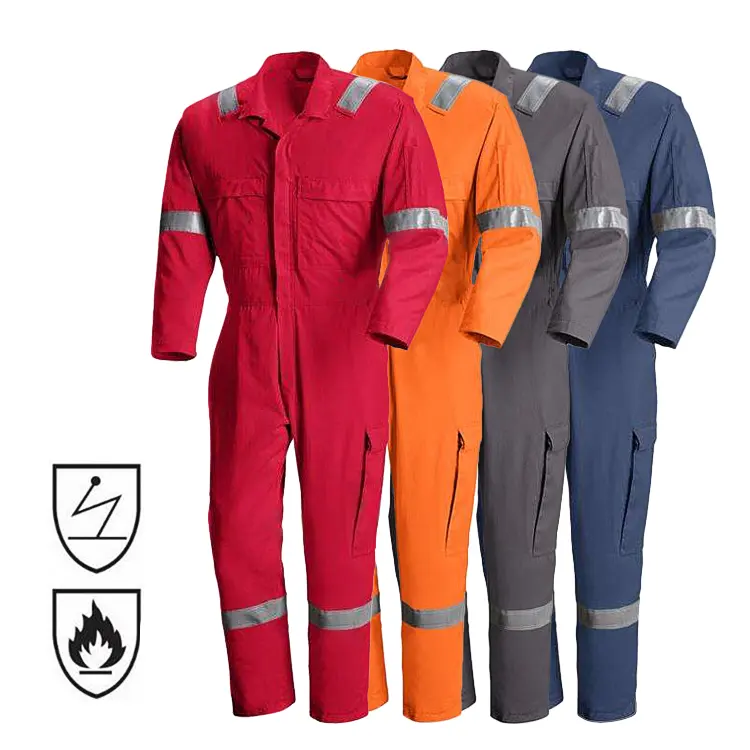
Fire-retardant overalls offer durable protection against heat, flame, and sparks during high-risk fireproofing tasks. Constructed from flame-resistant fabrics like Nomex® or treated cotton, they are designed for applications involving welding, grinding, or hot equipment near flammable firestop materials. FR overalls comply with NFPA 2112 and ASTM F1506 standards, providing reliable thermal defense in industrial environments. Their robust construction and comfortable fit make them ideal for long-duration use, offering superior safety and reduced burn risk in fire-rated construction zones.